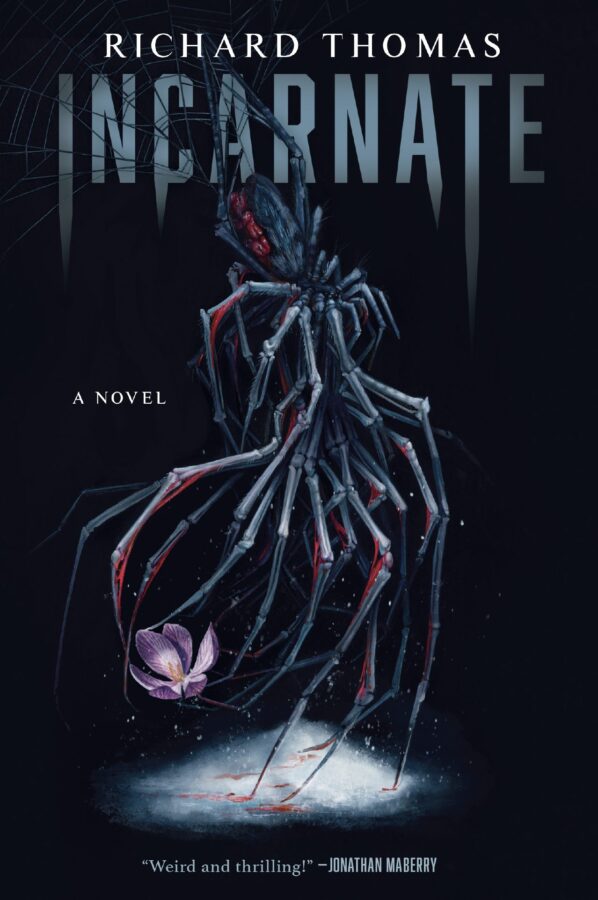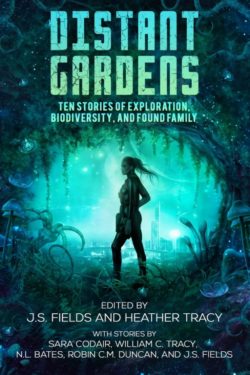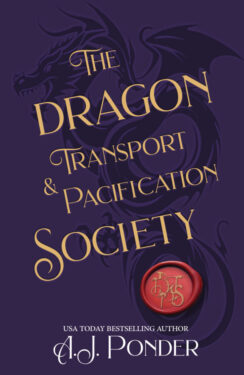by
“A must-read for fans of strange, surreal horror.” —The New York Times
In a frozen tundra, one man fights for redemption as monstrous creatures ravage a community already struggling to survive.
Sebastian Pana is a “sin-eater,” a shaman-like figure who can absolve the dead of their transgressions before they move on to the afterlife. But when Sebastian’s small arctic town is invaded by hideous, otherworldly beasts, he must wage battle with them the only way he knows how: by unleashing the power of sin itself.
From an author who has been compared to Lovecraft, Bradbury, and Gaiman, Incarnate is a masterpiece of contemporary arctic horror—both an epic confrontation between the forces of good and evil and a profoundly redemptive tale about our eternal quest for forgiveness.
Genres:
Tropes: Becoming a Monster, Humanity is Dangerous, Humanity is Good, Portals, Quest, Redemption Arc, Reluctant Hero
Word Count: 78000
Setting: Alaska, Arctic,
Languages Available: English
Tropes: Becoming a Monster, Humanity is Dangerous, Humanity is Good, Portals, Quest, Redemption Arc, Reluctant Hero
Word Count: 78000
Setting: Alaska, Arctic,
Languages Available: English
INCARNATE
By Richard Thomas
PROLOGUE
As I stare across the never-ending whiteness that is my arctic prison, I realize that while I seek isolation at times, the work requires me to interact with the locals—we each have something that the other party needs. And out here in the frigid wilderness, the night creeps in, expanding across several months, making my life, and duty, that much more difficult. I’m not getting any younger, and the cabin I live in, while ringed with several layers of protection, is not going to keep me safe from my work.
Not forever.
READ MOREI have to seek out my neighbors, this tricky relationship we have—my way of helping them to cross over, them giving me what I need to keep the shadows at bay. To the naked eye, I am an elderly man, at the edge of town, constantly chopping wood, planting strange bushes and flowers when the ground isn’t frozen, a smile and a wave as hunters pass by with their kill. Inside this ancient flesh, I’m something else entirely. Soon, the village will be buried, the passes closed by chest-high snowdrifts, roads erased, nothing entering, and no way out as well. It’s a good time to regroup, to heal, and prepare for the long night, as the woods will come calling soon enough.
My name is Sebastian Pana, and I’m growing tired, but there is much to do as winter approaches, never truly going away, always lurking, my life held in my shaky, freezing hands every time I step outside. There are so many ways to die here—the cold, the wet, the animals hungry at the edge of your vision, the isolation, starvation, drink, the traditions, and loneliness as well. I have few friends, and that is on purpose, but I am still human, for the most part. I long for companionship, as much as I seek out warmth, and enveloping peace. When I push out into the endless void, it is with a bright light, on the end of a long, sharp stick.
The veil is weakening, and they’re pushing through. I fear it won’t be long now.
COLLAPSESidestepping norms of decorum and taste is risky, but Richard Thomas pulls it off beautifully in INCARNATE (Podium Publishing, 254 pp., paperback, $19.99), a novel full of bizarre creatures, gore and suffering that explores grief, forgiveness and the eternal battle between good and evil.
“Incarnate” is split into three intertwining story lines. The first follows Sebastian, a sin-eater who helps the deceased cross over to the afterlife through a haunting ritual. The second is narrated by a female monster whose existence is concentrated on fighting for survival and looking for love while birthing monsters with different partners. She wants to protect the world from terrors coming in through an otherworldly portal, which is also one of Sebastian’s concerns. The third story line belongs to Kallik, a boy who befriends Sebastian and begins his training to become a sin-eater.
The Sebastian and Kallik sections are great. They delve into ideas about human cruelty while also examining love and care. The monster’s section in the middle is even better, but squeamish readers may bristle at the amount of weirdness and viscera in that narrative. Still, Thomas’s passion for language is evidenced by his lush descriptions of the frozen tundra where the story takes place and the creatures that inhabit it, and he tempers the most foul scenes in time to keep the novel from becoming off-putting. This is a must-read for fans of strange, surreal horror.







